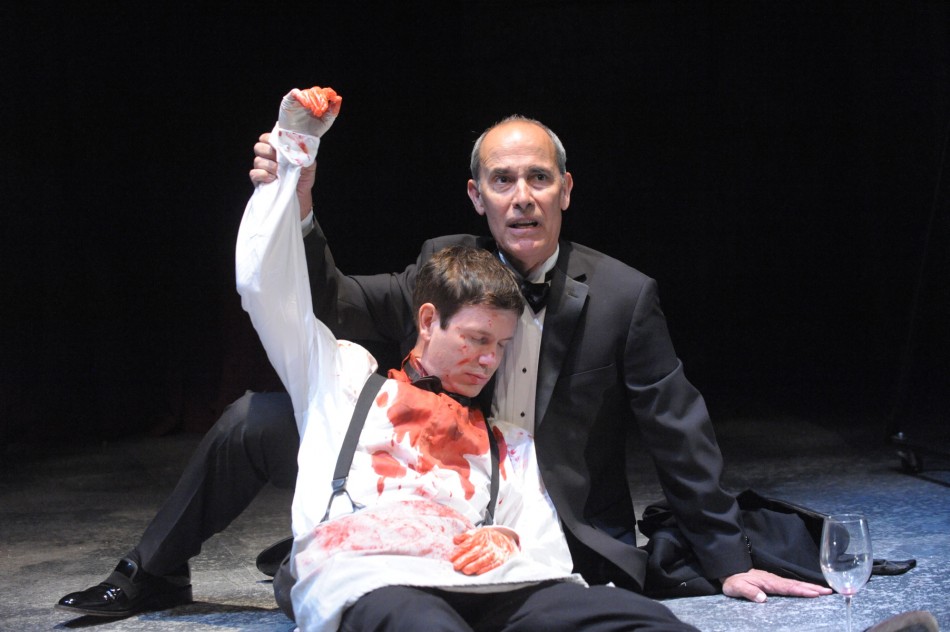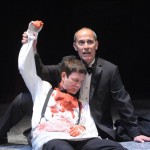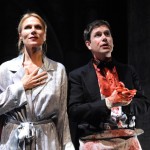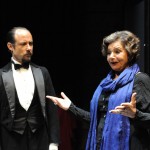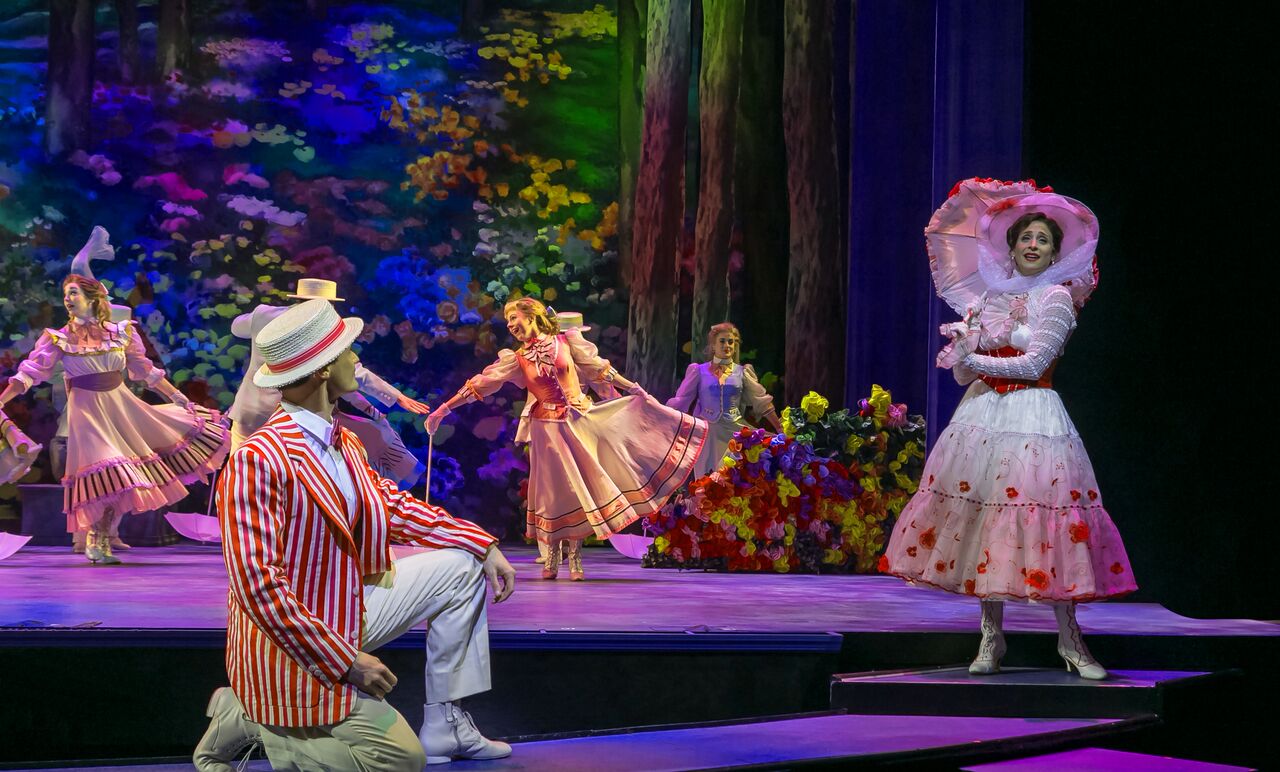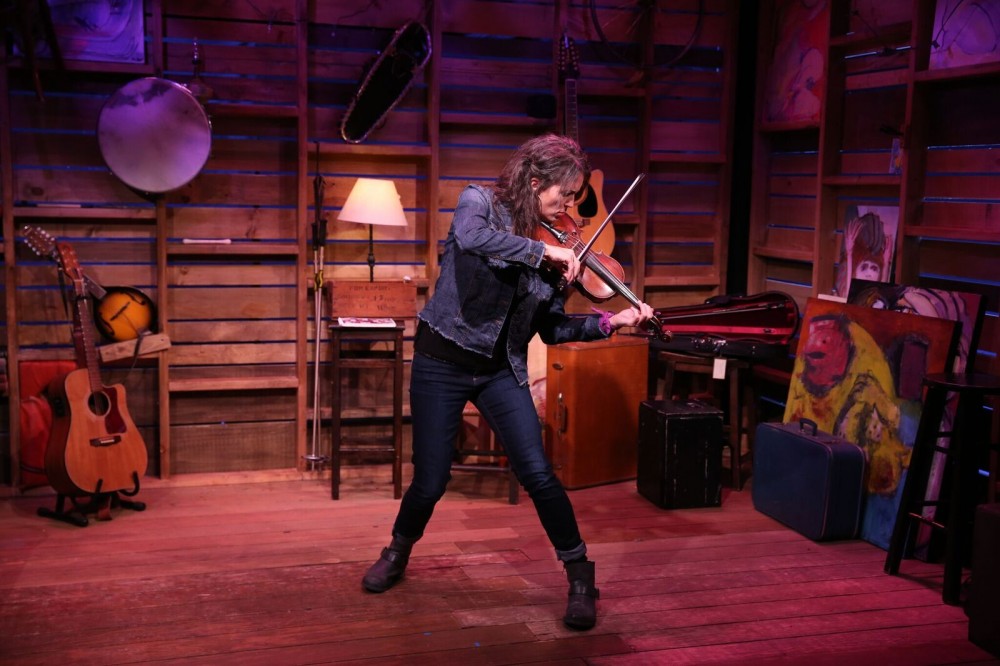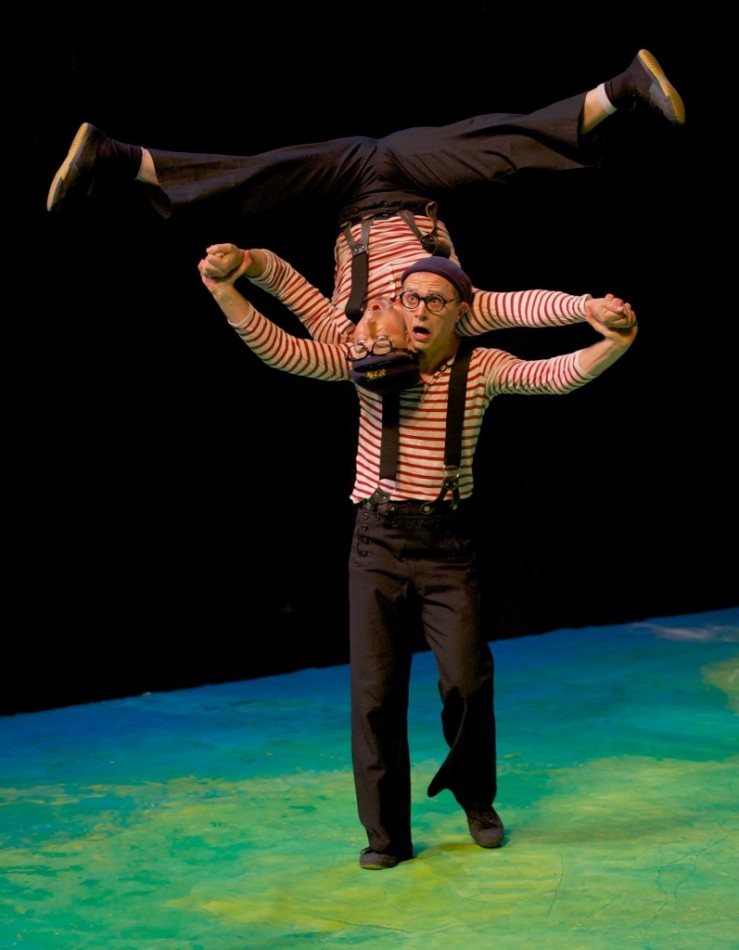NY Theater Review by JK Clarke
Because it is such a classic and revered work, Hamlet is one of those plays we often take for granted. Parts of the story should, however, give us pause. For example—and Hamlet himself asks this early on (“frailty, thy name is woman!”)—how is it that Queen Gertrude so easily married her husband’s brother within a month or two of the King’s death? Weren’t there people in the court or the country who had substantial problems with that? Who is this Gertrude, and how is she so callous? That question is addressed in the US premiere of Howard Barker’s Gertrude—The Cry, at Potomac Theatre Project’s (PTP/NYC). Though alternate views of Hamlet have been posited before (most famously, Tom Stoppard’s existential Rosencrantz and Guildenstern Are Dead), Barker’s inquisition is unquestionably one of the most radical and intense.
Gertrude—The Cry, is many things: shocking, intense, puzzling . . . Most of all it’s difficult to analyze, which is exactly as the playwright would have it. England’s Barker is founder of the Wrestling School theater company which emphasizes forcing the viewer to struggle with ambiguous plays’ meanings alone (as opposed to collectively). It’s a rather complex and confrontational style of theater that requires the viewer to work more than he is accustomed and which offers no single “message.” Performances are public challenges with multiple allowable interpretations.
Gertrude—The Cry begins with her and Claudius carrying out the murder of King Hamlet just as Shakespeare described it, with poison poured into his ear as he napped in the orchard. But here they are doing so while straddling the king in flagrante delicto, she fully nude (perhaps this is why Horatio reports, in the original, to have seen the king’s ghost “with his beaver up.”).
Queen Gertrude, it seems, is a power-hungry nymphomaniac, most aroused by betrayal. So, naturally, following the ultimate betrayal of King Hamlet, she betrays her lover/brother-in-law Claudius, not to mention everyone around her. She is driven by lust, by power, by a mania of passion. Bystanders—her son, his wife, her mother-in-law, her child—are easily dismissed accidental casualties. Getrude is perhaps a neo-feminist: an empowered, powerful woman with sexual agency, but with lesser interest in social climbing. She is not as driven or motivated by a lust for power than in a traditional story line. She is somewhat indifferent to personal gain, motivated more by passion and irreverent behavior. Her story is the chaos and ruin she creates in the lives of those around her.
As usual, PTP/NYC’s cast and casting is stellar. The company has some of the most expressive, multi-dimensional, powerful actors in the city. Pamela J. Gray (Gertrude) is bold, fearless and stunning, cutting a sharp, confident and sexy profile. Her power is as evident to the audience as it is to the characters in her life. Robert Emmet Lunney (Claudius) is a lusty lad, another non-traditional figure of power, who is willing to do whatever (murder’s no big deal) it takes to satisfy his fetish, which is hearing the soul-searing moans of his lover, Gertrude. David Barlow as Hamlet is wry, clever, soul-searching, funny and introspective, yet exasperated by the horrifying people around him. He’s exactly the Hamlet we see in the original play, but with different action around him: a neurotic trying to get by in a mad world. It would be a rare treat to see him play Hamlet in the original play. There is no Ophelia in this play, but a substitute, Ragusa (Meghan Leathers), who, by eventually going mad in her own way, proves that anyone thrust into that family by marriage would not survive with their sanity intact. Also introduced here is Isola (Kathryn Kates), Claudius’s mother, who’s less a Danish mom than a Jewish or perhaps Italian mother, focused on her childrens’ advancement, but resigned to the fact that maybe they aren’t so good after all. All of the family’s eccentricities clearly come from her. Kates is comical and sly, adding the humor of a bad mom to the dysfunctional family. Special note should be given to Alex Draper, as the almost narrative-providing servant Cascan, but who is clearly a member and symptom of this mad family.
Mark Evancho’s set is simultaneously simple and complex, reflecting the play’s context. One sees traces of castle ramparts, but functionally chairs and mirrors serve to augment the angles and viewpoints within the text. Danielle Nieves’ costumes are highly stylish and powerful, featuring (and this is a rare mention in a review) the absolutely elegant hats from Natalya Bythewood Millinery.
Director Richard Romagnoli has once again (he directed last summer’s brilliant The Castle) taken a Howard Barker play and delivered it exactly as it was meant to be. These are complex, humorous pieces that entertain, yet force the audience into deep protracted thought. After seeing the incredibly entertaining Gertrude—The Cry, it is likely you will never again see Hamlet in the same light.
Gertrude: The Cry. Through August 11 at Potomac Theatre Project/NYC at The Atlantic Stage 2, 330 W. 16th Street (between 8th and 9th Avenues). http://ptpnyc.org/


